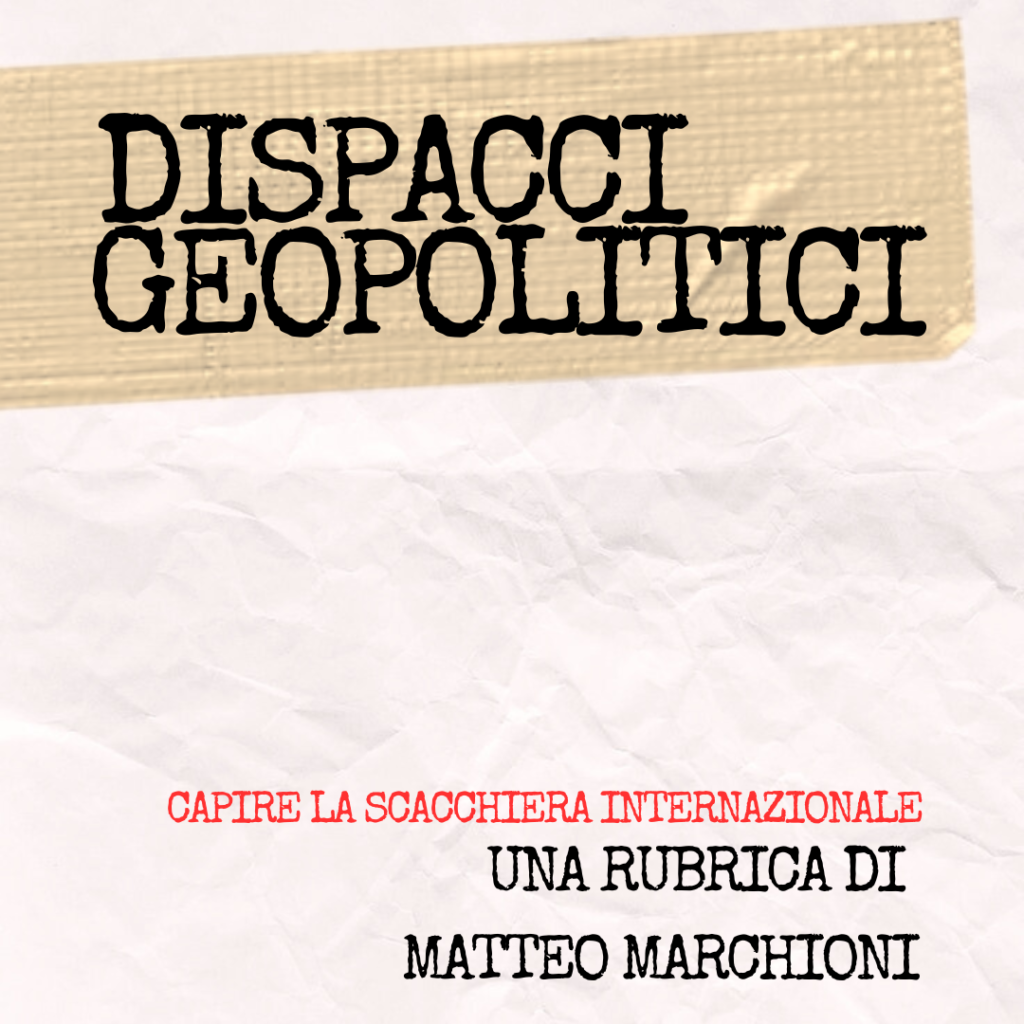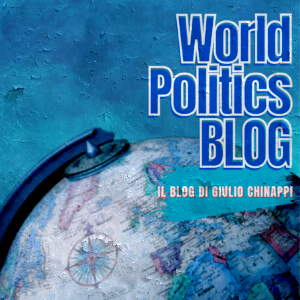A cura di Ivelina Dimitrova
Il discorso di Igor Sechin al XXVII Forum economico internazionale di San Pietroburgo: una visione critica sulla transizione energetica | The XXVII St. Petersburg International Economic Forum /SPIEF/ is one of the most important world business forums focusing on economic and social topics of global importance. Considered the international sanctions against the Russian Federation, nowadays it is a place where the voice of Moscow can be heard because it is an alternative to events like the World Economic Forum in Davos, dominated by the West.
At the SPIEF event held in June 2024 more than eighteen thousand people from 139 countries attended according to the organizers. Since 2006 the Forum is under the patronage of the Russian president Vladimir Putin who personally participates in the event and delivers keynote speeches.
However, in this year´s event another high- profile participant attracted the attention for being outspoken and very straightforward – the CEO of Rosneft Igor Sechin. The speech he made within the energy panel at the SPIEF represents quite a critical analysis on the green energy transition that dominates the world’s economic agenda in the last years and for this reason it is worth summarizing the main concerns that it raises.
Following the old Latin proverb Audi alteram partem, outlining and analysing for the larger audience the main points in Sechin’s presentation will give another perspective on the subject but however it should not be taken for granted because it presents a point of view based on the Russian national and economic interest.
Sechin’s keynote speech is named ¨Energy transition and phantom barrels: Abandon hope, all ye who enter here. Not everyone will be taken to the bright future of the global energy industry!”. As the title speaks enough for itself here below are the main problems that this report approaches.
- The first main point in the speech is that there is no proven relation between the
emissions generated from human activity and the climate change. In the past, the Earth has experienced significant climate changes as well and climate itself has never been in a constant state, evidence for which are the different geological periods that existed in the previous historic periods characterised with quite different flora and fauna from now and the well documented periods of ice ages that let to extinction of many of the species. In his report Sechin states that the climate change is mostly caused by natural events like the super volcanoes eruptions which can not be compared by its scale and intensity with the human activity. As a support to his statement the Rosneft CEO quotes the Noble price laureate in physics John Clauser who sustains that the main reason for climate change is the auto regulation of the Earth and not the anthropological activity.
This statement attacks the main pillar of the energy transition that has been used to justify all social economic sacrifices that especially the societies from the European Union, who most rigorously follow the green policies, are required to do. This pillar is that human activity is the main reason behind climate change. Here the statement is very straightforward: “with or without humanity the planet Earth will continue to undergo climate changes as it has always done so far”.
- The green energy resource which is indicated in the report as the most efficient one in
Long term is hydrogen but it is underlined that feasible technologies and logistics infrastructure which would make it economically profitable are yet to be developed. Another weak point of the hydrogen that is underlined is that with the current state of technologies the energy being utilized for the electrolysis in order to obtain hydrogen is more than the energy produced at the end of the process.
Consequently the main conclusion made by Sechin is that for the time being and with the current state of technologies alternative sources of energy can not secure yet the world demand at a reasonable economic price.
- With the above conclusions for the present state of commercial and technological
efficiency of the green technologies, Sechin dives deep into the reasons behind the green energy transition. He underlines the high economic price that is being paid and will continue to be paid in future. The report qualifies the motives behind the green transition as ideologically biased and unreal and not supported by economically reliable energy sources.
Sechin relies on western sources like Bloomberg to support his statement with economic data. More than 10 trillion US dollars, he states, have been invested in alternative energy sources in the last two decades but despite this financial stimulus they are still not an alternative to the traditional energy resources. Nowadays, wind and solar energy consumption accounts for less than 5 % of the world energy, electric vehicles are 3 % while oil, gas and coal consumption account for more than 35 % and remains at stable levels.
By 2030 another 9 trillion US dollars yearly, which is five times more than the expenses for renewable energy in 2023, are planned to be spent in order to achieve the goals of the Paris Climate Accords. These expenses are almost 10 % of the world GDP and three times more than the world investments in energy. This financial data clearly shows the dimensions of the financial resources needed for the green transition. The report underlines the need for completely new type of infrastructure that needs to be built to make the energy transition viable and efficient. An example is given with the energy transitions made in the XIX and the XX centuries which happened because significant investments were made to build completely new infrastructure like canals, railways and later pipelines, refineries, electro stations and long distance electric transmitters.
- Special attention in the speech is paid to the decreased supplies of Russian energy
resources in Europe. This concern is understandable because Moscow loses financial profits from the sharp decrease of these supplies. However, from the perspective of the analysed document, Europe’s intention to eradicate its reliance on Russian oil and gas and to substitute it with other alternatives like LNG and renewable energy leads to the continent’s de-industrialization and works in favour of the unipolar world model that is based on the control over the financial infrastructure, technology and logistics. In support of the statement that the green energy transition leads to Europe’s de-industrialization due to higher cost of energy, reference is made to data from the German Chambers of Industry and Commerce according to which 32 % of the German industrial entities are planning to move their production abroad.
- Another concern for Europe that is pointed out is its economic backwardness in
comparison to the U.S.A which has become more visible in the recent decades. And while the U.S.A continues to develop some ecologically controversial activities like the production of its own shale oil and gas, Europe relies on imports from abroad. Referring to Wall Street journal’s analysis Sechin claims that by 2035 EU’s and U.S.A.’S GDP could differ by five times, which is the nowadays difference in GDP between Ecuador and Japan.
- In its critical statement the CEO of Rosneft goes even further declaring that the green
transition leads to financial resources leaking from the developing to the developed countries and this way it is a new form of neo – colonial policy as it imposes massive sanction barriers for 88 % of the world’s population.
- Another major observation is that nowadays there are trade wars for energy markets.
In these new trade wars the imposition of sanctions is used as a method of overtaking markets from the competitors. An example is given with the U.S.A. that imposed sanctions on the energy exports from countries like Russia, Venezuela and Iraq and subsequently overtook many of their energy markets. Another important emphasis in the report is the financial dominance of the U.S.A due to its control over the USD emission that is used as an instrument in the trade wars in favour of Washington.
- An important problem still not completely visible that is outlined in the report is that
green technologies are still subsidised with public funds in order to be financially competitive with the traditional energy technologies. However, in order to balance the public expenditures made on green technologies some additional taxes are planned to be imposed and example is given with the electric vehicles. If additional taxes are imposed in future on such green technologies and the public subsidising is stopped as this starts to happen in countries like Great Britain, New Zealand and the United States, these new technologies will become financially uncompetitive and inaccessible for the major part of the population.
- A source of major concern that is also raised is the increased need of metals that need
to be applied in the green technologies. The electric cars need six times more metals for their production than the conventional non-electric vehicles. Referring to data from the International Energy Agency by 2030 the green transition will increase the global demand for copper more than 1.5 times, for nickel and cobalt two times and for lithium four times. Considered all this concerning forecasts Sechin makes the conclusion that the problem with the greenhouse emissions should be solved by improving the energy production efficiency and not by imposing restriction on the conventional energy sources.
- One of the main conclusions of the report is that green energy transition in its current
form is untenable and infeasible. Consequently Europe starts to review its energy policy as it brings hard economic consequences. Again the report refers to the German Chambers of Industry and Commerce according to which more than half of the industrial enterprises in Germany have negative opinion about the energy transition. The report also sustains that there is withdrawal of investors from such projects. An example is given with one of the main initiators and supporters of the green energy transition- the investment company BlackRock that redirected more than 20 billion US dollars initially planned to be spent for the energy transition to the military industry.
- A major conclusion in Sechin’s speech is that a new, more just for the poorer
countries аnd better balanced concept for energy transition is needed. It should be working in the interest of the majority of the world and not for few ones. To support this statement a referral to a well known fact is made- that the major contributor for the greenhouse emissions are mainly the industrially developed rich countries. Only 10 % of the richest world population is responsible for 65 % of the total greenhouse emissions.
- Energy transition should bring energy security and the last one being defined as
sufficiency, accessibility and reliability of energy resources. With the increase in the world energy consumption which is forecast to happen in the following decades energy needs can not be covered with the current state of development of the renewable technologies.
The increase of demand is partially due to the massive digitalization, artificial intelligence and the big data centres that need a lot of energy for their operations. According to Goldman Sachs’ estimation by 2030 the total consumption of these big data centres worldwide will account for 1000 TW which is equal to the total energy consumption of Germany and France together. A simple chat GTP search consumes 10 times more electricity than a Google search and with the spread of AI in the everyday life, energy consumption will increase reciprocally.
- Special attention is paid on the role of Russia as a guarantor for the world energy
security. Despite the sanctions, Russia plans to reroute its export to the fast developing markets of the Asia Pacific Region where even now 80 % of the Russian energy exports go. Another pillar of the new Russian energy strategy includes investment in the oil and gas infrastructure in India- a new enormous energy market for Moscow after it lost the European Union following the sanctions imposed.
Sechin also underlines the importance of the Northern Sea Route Project (NSR) for Russia. This is the shortest shipping route between the Russian North with its rich deposits of natural resources and the populous and fast developing region of Asia Pacific, which is now turning into Russia’s biggest market. Even now 10 % of the world oil and 25 % of the world natural gas are being produced in the Russian Arctic and according to the strategy that Sechin outlines the development of this route will be one of the most important energy projects for Moscow in the following years.
- Another important point , although not directly connected to the energy transition, is
the development of alternative payment systems and the use of national currencies in the trade between Russia and the rest of the world. This long time desire of Moscow is explicable because its ultimate goal is to bypass the financial sanctions imposed by the West not only on the trade with energy resources, one of Russia’s main sources of income, but also on all financial operations.
Considered the above presented points, Sechin makes the general conclusion that the the green transition in its current state is not sustainable and a whole new strategy for reliable and safe energy supplies that takes into consideration the needs of the developing countries should be elaborated.
Considered the above summary some notes should be made. First of all, Sechin’s observations are made in accordance with the energy and economic interests of theRussian Federation which is one of the largest producer of conventional energy resources and has interest to keep these resources in use.
Secondly, nevertheless this fact, some serious issues that reflect the concerns of many European and other nations are approached.
Will green transition be able to obtain notable ecological effect or the antropological activity can not influence much climate change?
What will be the ecological impact of the increased extraction and use of metals and raw earth elements applied in the new technologies?
What will be the economic price that should be paid for this transition, will it be paid equally by all countries and could the developing countries afford it?
If green transition has high economic costs and negative social economic effect will this cause technological lagging for humanity?
In conclusion, it should be noted that energy transition is inevitable, it is a cyclic process that goes together with human and economic progress. Unlike the energy transition from the last century when the ecological factor was not considered, now this is the central point of concern. This is reasonable and fair approach because nature does not belong to us but to all future generations and human activity should affect it to a lesser extend possible.
However, energy transition should also bring economic prosperity and make everyday life better and easier, just like the introduction of electricity and the vehicles with combustion engines did in the past. The principle that Salus Populi suprema lex esto should go hand in hand with the environmental factor and in order to achieve this fragile balance, investments to improve the current technological state of the green technologies are urgently needed, especially regarding recycling and energy storage systems. If this equilibrium is not obtained more and more scepticism and just criticism towards the energy transition will spread worldwide in the near future which will put at stake the whole “green” concept. Also if only Europe goes green paying the high social economic price for this transition, this will have insignificant environmental impact worldwide but it will change completely its economic landscape in favour of other regions that are not so rigorously applying the green deal.


















Il CeSE-M sui social